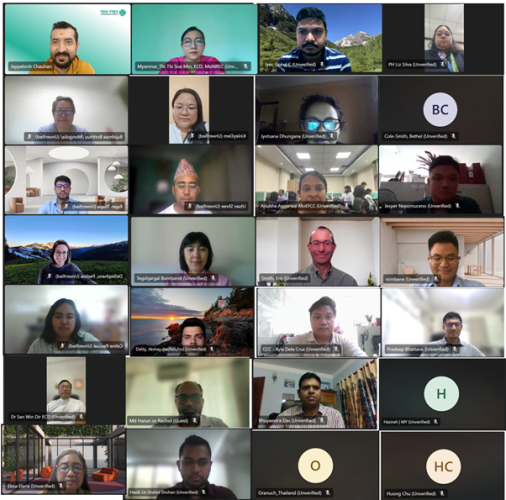Please find the recording of the webinar on our YouTube channel here.
Background
The Biennial Transparency Report (BTR) is a requirement under the Paris Agreement to enhance transparency in climate action. Parties are expected to submit BTRs every two years, which contain key information on greenhouse gas (GHG) emissions and removals, as well as progress towards climate targets, policies, and measures implemented by countries. The first BTR submission is a critical milestone for countries as it provides a comprehensive assessment of their climate actions and helps build trust among parties by ensuring transparency and accountability.
An important component of the Paris Agreement’s Enhanced Transparency Framework (ETF) is reporting projections of greenhouse gases (GHG projections) in BTRs.1 Countries shall report GHG projections in BTR according to the Modalities, Procedures and Guidelines, with the first submission deadline for BTRs set for no later than 31 December 2024.2 Projections of GHG emissions and removals serve as a forward-looking tool for understanding a country’s potential future emissions under various scenarios. They are essential for demonstrating the expected impact of current and planned policies and measures. The inclusion of these projections in the BTR allows stakeholders to assess whether a country is on track to meet its Nationally Determined Contributions (NDCs) and long-term climate goals.
GHG projections are valuable tools for policymakers to establish GHG reduction targets, identifying progress made toward those targets, and assessing the expected impacts of mitigation measures. In many countries, expertise is available in local institutions to develop GHG projections. Strengthening the capacity of in-country experts to work on projections can lead to improved national communications, increased transparency, and can contribute to improved policies and measures.
Countries may face challenges in developing and reporting GHG projections depending upon the availability of input data, access to GHG projections tools, and in-country analytical capability. The U.S. Environmental Protection Agency (EPA) capacity-building initiative – the Paris Agreement Transparency Accelerator – offers long-term collaboration and support to help developing countries meet ETF reporting requirements through development of high-quality BTRs, including robust GHG projections. The CBIT GSP in collaboration with Paris Agreement Transparency Accelerator invites countries to participate, regardless of technical capacity or experience with GHG projections. The webinar and participation are open to all developing countries, regardless of their current plans for projections for BTRs.
Objectives of the Webinar:
- To provide participants with a comprehensive understanding of the role and importance of GHG emission/removal projections in the BTR under the Paris Agreement.
- To help participants understand how GHG projections feed into tracking the progress of NDCs and long-term climate goals, enabling effective climate policy planning and implementation.
- Introduce the Paris Agreement Transparency Accelerator, including its team of GHG projections experts, outreach, and planned collaboration with CBIT-GSP.
- Share the Paris Agreement Transparency Accelerator’s capacity building support for developing and reporting GHG projections.
- Announce an upcoming workshop [Tentatively in October] for coordinators of BTRs and in-country GHG projections experts. The intent of the workshop is to initiate a long-term “community of interest” for GHG projections, and to understand the needs of partner countries. The workshop will allow participants to collaborate to share expertise, discuss challenges, address issues, and work with international GHG projections specialists.
